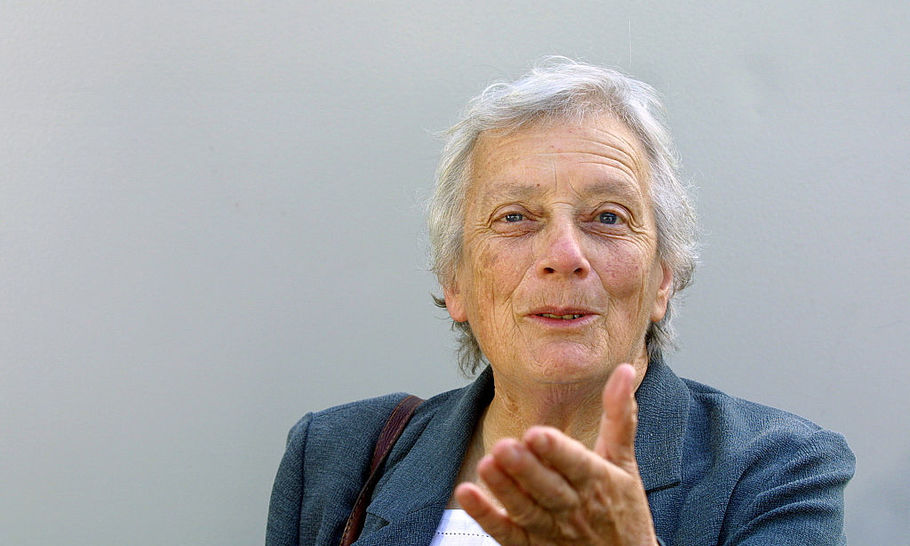Mary Warnock – on memory and the self

(Photo by Colin McPherson/Corbis via Getty Images)
In 1976 the Oxford philosopher Mary Warnock published a book called Imagination. A decade or so later she published another philosophical gem, Memory. Taken together, the two works constitute an impressive, original, but ultimately flawed theory of the human person.
In the former work, Warnock argues that even in the most basic interactions of persons with the world, there is a role, an essential one, for imagination. The mind selects and interprets the data presented to it:
“Without imagination we should be lost; for only with its help can we interpret our experience, turn it into experience of an outer world, and thus make use of it in understanding what and where we are, and what we need to do.”
In the latter, her thought has developed in a very natural direction: if “imagination” is a necessary mental instrument for making sense of what the world presents to the mind now, then it must also have a role to play in how we remember what happened then.
Warnock was a contemporary and friend of the Oxford philosopher and novelist Iris Murdoch. Like Murdoch, Warnock saw in literature the discernible expressions of metaphysics. Not the same metaphysics — Murdoch was a Platonist, Warnock an uncompromising materialist. But both saw in literature the elaboration of philosophical assumptions.
Warnock was impressively sensitive to the role that the concept of memory plays in literature. She was aware, also, that the influence of that concept almost invariably assumes — or more accurately, examines — an equivalence between memory and self. From Proust to T.S Eliot the connection between these two seems inextricable. And going back slightly further:
“Canst though not minister to a mind diseased, pluck from the memory a rooted sorrow, raze out the written troubles of the brain, and with some sweet oblivious antidote cleanse the fraught bosom of that perilous stuff which weighs upon the heart”.
Macbeth insists that his wife is not irredeemable, provided that the memories of bad action are removed from her. Unfortunately, the “written troubles” are precisely those which cannot be razed. The “rooted sorrow” is something beyond our control, as is the activity of memory.
The tragedy of the dementia sufferer is not that he suffers physical hurt. It is that he is becoming systematically and irretrievably decoupled from the person he used to be. There becomes a lack of clarity over who he is now (if there remains such an entity).
It was John Locke who suggested that there is a distinction between the human body and the person we associate with it, and that therefore we have to identify these two things according to different criteria. The human body, he argued, is a degradable material item in the physical world, identifiable in much the same way as we would identify a table. The human person, on the other hand, is defined in terms of a set of continuities bound together by memory. This is the same body because its life journey from young and fit to aged and decrepit is continuous and is rooted in a “real essence” which remains unchanged. I am the same person because I remember being the same person over time.
Locke’s view, as he presented it, is not defensible, but it discloses an irreproachable insight. It is contestable because it is circular: a memory only counts as a memory if we know who it “belongs” to. From which it follows that you need a theory of “the self” to justify a theory of “the memory” and not the other way around.
The insight, however, is sound. It might not be possible to define the self in terms of memory, but it seems intuitive to suggest that without memories you (who?) cease to be a “self”.
So, what is memory? There is a tendency (which Warnock warns against) to think of it as mere “recollection” of past events. It is no such thing. When we remember something, we are not remembering an event, rather we are using the resources of the imagination to recreate a previous experience. When I remember my son’s birthday party, I’m reconstructing experiences of that event, not the “event” itself.
Warnock’s view was that the capacity for memory (and imagination) are ultimately properties of the brain. Hers was a thoroughgoing materialist metaphysics. It’s one which is supported by current neuroscientific orthodoxy which “locates” those interdependent human cognitive competencies in the same area of the brain.
But her own insights in this area argue in the other direction. The materialist assumption, that mental phenomena are reducible to brain states, is always hostage to the facts of phenomenology. There is something about mental states (such as being in pain) which seems to make them not easily assimilable into a theory of the self which prefers to talk about the brain as not merely where experience is “located”, but with which it must be identified.
The phenomenon of recollection is one such pesky recalcitrant from the perspective of the Warnock types.
There is a very peculiar feature of memory which escapes the Warnock-materialist assumption. When you remember something which happened a week ago and compare it with something you remember from a year ago, you don’t merely remember that the latter happened before the former; you remember it as happening before the former. There is something internal to the act of memory that is not merely a “time stamp” but is mysterious from any account of that act which makes use only of the concepts of neuroscience.
Memory: ultimately mysterious, elusive, and quixotic. I’m not even sure it’s a mystery I wish to be solved. Mary Warnock didn’t get close to a solution, but she framed the issue in deeply interesting ways.





